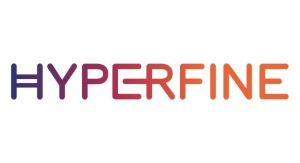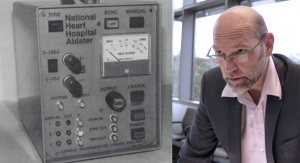07.26.18
$16.2 Billion ($27.4B total)
KEY EXECUTIVES:
Miles D. White, Chairman and CEO
Brian B. Yoor, Exec. VP, Finance and CFO
Brian J. Blaser, Exec. VP, Diagnostics Products
Robert B. Ford, Exec. VP, Medical Devices
Sharon Bracken, Sr. VP, Rapid Diagnostics
Chuck Brynelsen, Sr. VP, Abbott Vascular
Jaime Contreras, Sr. VP, Core Laboratory Diagnostics, Commercial Operations
Michael J. Pederson, Sr. VP, Cardiac Arrhythmias and Heart Failure
Jared L. Watkin, Sr. VP, Diabetes Care
NO. OF EMPLOYEES: 99,000
GLOBAL HEADQUARTERS: Abbott Park, Ill.
Wednesday, Jan. 4, 2017, ushered in a new era for Abbott Labs and the medical device industry as a whole. It solidified the largest medtech deal since Medtronic’s $50 billion Covidien buyout, added a bevy of cardiovascular and chronic pain management technologies to Abbott’s arsenal, and constructed a brand new medical device behemoth.
According to the Chicago Tribune, since integrating Minnesota-based St. Jude Medical Inc., cardiovascular and chronic pain devices now comprise about a third of Abbott’s total business. Prior to that, cardiovascular technologies made up approximately 15 percent of the business, and the chronic pain management segment didn’t exist at all. In fact, 2017 revenue from the chronic pain management and cardiovascular sales alone—about $8.9 billion—would have been enough to earn it a spot in the Top 30.
But with $16.2 billion in fiscal 2017 medical device and diagnostics sales (year ended Dec. 31), Abbott surged ahead several spots in the list. Chiefly thanks to the full integration of St. Jude, the Illinois-based firm’s medical device earnings jumped an earth-shattering 60.4 percent over the previous year. To fully realize the sale’s tremendous impact, Medtronic’s integration of Covidien netted it a 42.3 percent payoff boost—especially impactful considering the $25 billion St. Jude deal was half the price.
Absorbing St. Jude didn’t come without a price to Abbott, however. The Federal Trade Commission only gave its consent to the deal after Abbott agreed to sell its business focused on steerable sheaths—which are used to guide catheters in treating heart arrhythmias—and St. Jude’s vascular closure device business to Tokyo-based medical device maker Terumo Corp.
Less than a week after the deal closed, the FDA also confirmed that St. Jude’s implantable cardiac devices contained vulnerabilities that could permit hackers to access a device. Once in, the agency warned that intruders might be able to deplete the battery or administer incorrect pacing or shocks.
The potential for vulnerability was already in the public mind as early as August 2016, when investment firm Muddy Waters founder Carson Block released a report claiming St. Jude’s devices could be tampered with. At the time, St. Jude said the claims were “absolutely untrue” and subsequently filed a lawsuit against the firm.
Block told CNN Tech the FDA’s announcement “vindicates” his firm’s research. St. Jude also developed a software patch in response to the issue to fix the vulnerabilities, but Block was still skeptical.
“It also reaffirms our belief that had we not gone public, St. Jude would not have remediated the vulnerabilities,” he said. “Regardless, the announced fixes do not appear to address many of the larger problems, including the existence of a universal code that could allow hackers to control the implants.”
Abbott finally remediated the issue late last August, following an FDA approval for a software update earlier that month. The update included a battery performance alert for implantable cardioverter defibrillators (ICDs) that warns physicians about the risk of premature battery depletion earlier. According to the Tribune, as of October 2016, two people had died in incidents associated with the devices. Further, as of that date, 841 out of nearly 400,000 devices experienced the early battery depletion.
Though the FDA found no instances of patient harm resulting from the cybersecurity issue, Abbott also released a planned update to pacemaker firmware that added additional security protections to reduce the risk of unauthorized access.
“All industries need to be constantly vigilant against unauthorized access,” Robert Ford, Abbott’s executive vice president of medical devices, commented regarding the update. “This isn’t a static process, which is why we’re working with others in the healthcare sector to ensure we’re proactively addressing common topics to further advance the security of devices and systems.”
And in the midst of all of this, Abbott was still embroiled in the tumultuous deal to purchase Massachusetts-based point-of-care (POC) diagnostics firm Alere. Those following the acquisition’s sordid history may recall that Abbott had previously attempted to back out of the deal after a slew of financial and ethical missteps that came to light during negotiations. This led to lawsuits filed from both companies, with Alere forcing Abbott to move ahead with the deal, and Abbott wanting to back out, citing “substantial loss” in the diagnostic company’s value.
Rather than abandoning the deal, last April Abbott instead offered to purchase Alere at about $5.3 billion, $500 million down from the original purchase price—and Alere agreed. Abbott ended up paying $51 per share for the company, a far better outcome than what Alere’s shareholders had priced in—according to Reuters, Alere’s shares closed at $42.31 the day before the offer was made.
“The renegotiated price is in the realm of investor expectations and seems to reflect the impact from some of the challenges witnessed in Alere’s business over the last 12 months,” Raymond James analyst Nicholas Jansen told Reuters.
After nearly 20 months of negotiations, Abbott finally closed the deal for Alere early last October. The transaction made the company a leading force in the POC testing market, the fastest growing segment of the $50 billion in-vitro diagnostics (IVD) market. According to Abbott, the POC testing market was valued at $7 billion in 2016, and is growing quickly as physicians increasingly adopt rapid tests that speed up treatment. POC tests provide results to doctors in minutes and can be conducted in the physician’s office, an ambulance, or at home.
Abbott’s diagnostics business produces core laboratory, molecular, and POC diagnostics, in addition to rapid diagnostics offerings obtained through buying Alere. Last year, the business accrued $5.6 billion in revenue, rising a respectable 16.7 percent primarily due to the addition of Alere’s portfolio in the fourth quarter, which touted $540 million in sales. Meanwhile, core laboratory sales rose 6 percent to $4.1 billion, molecular diagnostics stepped up 2 percent to $463 million, and POC diagnostics increased 7 percent to $550 million. Continued adoption of the i-STAT handheld system and share gains in the global core laboratory and POC markets were also significant drivers of revenue expansion for this business.
A week after closing the St. Jude deal, Abbott gained CE mark clearance for its Alinity ci-series instruments for clinical chemistry and immunoassay diagnostics. The next generation of harmonized systems aim to help labs and hospital systems run more tests in less time, reduce human error, and increase testing productivity. With a flexible, modular design, the Alinity c clinical chemistry system and Alinity i immunoassay system can operate individually or as an integrated Alinity ci-series unit, all within half the size of typical diagnostics systems. The system features increased loading capacity for samples and tests, continuous access to solutions and supplies, error-proof design elements, and an intuitive menu design with a user-friendly interface. The Alinity ci-series instruments also received FDA clearance last Halloween.
The same day the Alinity ci-series instruments hit the European market, Abbott also obtained EU approval for the Alinity s System for blood and plasma screening. The new system screens blood and plasma faster, more efficiently, and within a smaller footprint than Abbott’s current solutions. Alinity s can run up to 600 tests per hour and boosts walk-away time to a minimum of three hours. Further, it allows lab professionals the option to continuously load and unload samples and supplies without pausing or stopping the system.
Last February, the FDA authorized Abbott’s RealTime ZIKA molecular test to detect Zika virus in whole blood when collected alongside a patient-matched serum or plasma sample for emergency use. It marked the first molecular test made by a commercial manufacturer authorized to detect Zika in whole blood samples, which is significant because Zika can be detected in whole blood for longer (up to two months) and at higher levels than testing with serum and urine samples. The test generates results in five to seven hours and is also automated, so lab professionals can spend less time preparing and handling samples.
The Alinity hq analyzer for hematology achieved CE mark approval last June. Hematology studies the physiology of blood and the cause, diagnosis, treatment, and prevention of blood-related diseases. Hematology tests examine blood composition by identifying and quantifying different types of blood cells. The Alinity hq analyzer automates these tests and reports on 29 different parameters within minutes. It does so via advanced optical technology combined with algorithms to handle normal and pathological samples, and a scalable, modular design to customize configurations to better serve a broad array of labs.
The same day, Abbott procured CE mark clearance for the Sekisui CP3000 coagulation system, an automated analyzer that tests bleeding and clotting function in blood. Abbott’s AlinIQ informatics and service offerings streamline operations, providing intelligent lab insights and simplifying reading and interpretation of results. Further, the CP3000 coagulation system can automate and standardize sample management and flag unsuitable samples at the start of testing. It offers an expanded menu of barcoded reagents to reduce data entry errors. All of these functions work together to curb delays in coagulation testing related to sample errors and manual errors in the testing process.
Abbott’s cardiovascular and neuromodulation portfolio consists of remaining vascular and structural heart products not divested to Terumo, as well as rhythm management, electrophysiology, heart failure, and neuromodulation technologies obtained through the St. Jude purchase. This segment expectedly benefitted from the most significant revenue bump due to the deal—in 2017, the business generated $8.9 billion in sales, approximately tripling in revenue from the year prior.
The rhythm management, electrophysiology, heart failure, and neuromodulation product lines acquired from St. Jude exhibited $2.1 billion, $1.4 billion, $643 million, and $808 million in 2017 revenue respectively. The vascular portfolio rose 14 percent to achieve $2.9 billion in proceeds, and the structural heart segment ballooned 208 percent to earn $1.1 billion in sales.
Abbott launched the EnSite Precision cardiac mapping system and Advisor FL Circular Mapping Catheter to map cardiac arrhythmias during ablation treatments last January. Built on the foundation of St. Jude’s cardiac mapping technology, EnSite Precision lends automation, flexibility, and precision to cardiac mapping. The dual-technology platform leverages detailed anatomical models and maps to treat a wider range of arrhythmias, including atrial fibrillation and ventricular tachycardia. The system’s EnSite AutoMap module helps electrophysiologists more quickly perform morphology matching to identify the source of the irregular heartbeat. The TurboMap feature included within the module also allows physicians to construct heart maps 10 times faster than current systems using recorded data.
A week later, the Proclaim DRG (dorsal root ganglion) Neurostimulation system for chronic neuropathic pain was launched in Europe. Neuropathic pain is one of the most prevalent, yet undertreated forms of chronic pain. The device targets nerves within the DRG, which is a spinal structure rife with sensory nerves. By stimulating this area, Proclaim DRG can help patients manage difficult-to-treat chronic pain in the foot, knee, hip, or groin. Abbott’s ACCURATE study of Proclaim DRG also demonstrated that DRG therapy can offer superior pain relief for patients with complex regional pain syndrome and other focal chronic neuropathic pain conditions, as compared to traditional spinal cord stimulation technology.
“Many patients battling chronic neuropathic pain have not found adequate relief from other forms of treatment, which is why dorsal root ganglion stimulation has been such an important therapeutic advancement for pain specialists worldwide,” said Harold Nijhuis, M.D., an anesthesiologist from St. Antonius Ziekenhuis, Niuwegein, the Netherlands. “With the approval of the Proclaim DRG System, I am able to address chronic focal pain for my patients while offering them access to new, patient-centric benefits and features to improve their therapy experience.”
The Assurity MRI pacemaker and Tendril MRI pacing lead won FDA approval for MR-conditional labeling at the start of February 2017, granting patients implanted with the low-voltage devices the ability to undergo full-body MRI scans. The world’s smallest, longest lasting wireless MRI-compatible pacemaker can also wirelessly and remotely monitor the patient so physicians can securely access diagnostic metrics and daily device measurements. Assurity MRI also uses a handheld device to trigger pre-programmed MRI settings tailored to individual patients, eliminating the effort, time, and inconvenience of conventional pre- and post-scan reprogramming.
Abbott obtained FDA approval for the FlexAbility Ablation Catheter, Sensor Enabled a month later. Expanding the company’s electrophysiology portfolio for patients suffering from cardiac arrhythmias, the ablation catheter helps collect both impedance and magnetic data for detailed, accurate mapping and to assist in treating sites triggering or sustaining abnormal heart rhythms. FlexAbility was the second Sensor Enabled tool released in the United States for the EnSite system, and allows physicians to create highly detailed 3D cardiac models with the heart’s electrical activity overlaid on it.
Last May, the Confirm Rx Insertable Cardiac Monitor (ICM), the world’s first smartphone compatible ICM, was awarded CE mark approval. The Confirm Rx ICM continuously monitors heart rhythm and transmits information to the myMerlin mobile app so physicians can follow patients remotely and accurately diagnose arrhythmias. The ICM directly and securely communicates to the app downloaded onto a patient’s smartphone. Traditionally, remote monitoring has required bulky handheld or bedside transmitters, limiting patient mobility. Further, the device is slimmer than currently available ICMs, and touts one-touch indication-based programming to make the technology more convenient. The Confirm Rx ICM made its U.S. debut last October.
“The Confirm Rx ICM device will be an important tool for diagnosing patients with suspected arrhythmias, such as those who have experienced fainting or palpitations,” said Georg Nölker, M.D., head of electrophysiology at the Herz-und Diabeteszentrum NRW, Ruhr-University of Bad Oeynhausen, Germany. Dr. Nölker was one of the first physicians to implant the Confirm Rx ICM after it received CE mark clearance. “The simple insertion procedure and small device size make this technology convenient for both patients and providers. Patients can record symptoms directly on their smartphone without the need for a bedside transmitter or separate activator.”
A week later, the TactiCath Contact Force Ablation Catheter, Sensor Enabled, the latest catheter for use with the EnSite Precision system, gained EU approval. Like its predecessor, TactiCath provides dual impedance and magnetic technologies to more precisely model the heart. However, the integrated system also helps physicians determine where to apply optimal contact force (pressure) when creating a lesion during a cardiac ablation to correct a heart rhythm abnormality.
In August, Abbott began the TRILUMINATE study, a prospective, single-arm, multi-center study designed to evaluate the performance of clip-based technology in approximately 75 symptomatic moderate or severe tricuspid regurgitation patients at 25 sites across the United States and Europe. The transcatheter tricuspid valve repair system builds on Abbott’s more than a decade of development for the MitraClip system for mitral regurgitation. TRILUMINATE is the first trial of its kind to evaluate minimally invasive treatment using clip technology for moderate or severe tricuspid regurgitation.
Toward the end of last August, Abbott achieved an FDA nod for the Full MagLev HeartMate 3 Left Ventricular Assist System (LVAD). HeartMate 3 offered physicians a new option to manage advanced heart failure patients needing bridge-to-transplant or bridge to myocardial recovery. HeartMate 3’s pump uses magnetic levitation (the only LVAD of its kind to do so), which helps to reduce trauma to blood passing through the system. The “Full MagLev” technology allows the device’s rotor to be “suspended” by magnetic forces rather than bearings to more gently pass blood cells trough the pump, no matter what speed settings are used by the physician. It can pump up to 10 liters of blood per minute, and relies on a built-in “pulse,” which is programmed to ensure blood continues to move through without becoming static, reducing the risk of blood clots.
This past May, however, Abbott recalled all lots of HeartMate 3 due to a malfunction in the device’s outflow graft assembly that may cause the outflow graft to twist and close up (occlusion) over time.
Last September, the Ellipse ICD with Tendril MRI pacing lead and Durata and Optisure high voltage leads obtained FDA approval for MR-conditional labeling. Ellipse, according to Abbott, is one of the company’s most widely used ICDs and associated high-voltage leads.
Xience Sierra, the newest generation of Abbott’s Xience everolimus-eluting coronary stent system, received CE mark approval last October. Xience Sierra boosts cardiologists’ ability to access and unblock difficult-to-reach lesions thanks to a new stent design and delivery system and unique size options.
Abbott’s remaining medical device revenue is encompassed in the “Other” category, which since the sale of Abbott Medical Optics to J&J in 2016 consists entirely of Diabetes Care products. The segment—which will presumably be named Diabetes Care in next year’s report—reported $1.7 billion in revenue.
However, Diabetes Care released what was perhaps Abbott’s most momentous device of the year. Last September, the FreeStyle Libre Flash Glucose Monitoring System won FDA approval for adults. Consisting of a sensor about the size of a quarter worn on the back of the upper arm, the device was the first continuous glucose monitor (CGM) that doesn’t require diabetics to routinely prick their fingers, even for calibration. Patients place a handheld reader near the device to see current glucose levels, trends, patterns, and where their levels may be headed. Those readings can help patients determine how much insulin to take to manage their diabetes.
At the time of release, national health insurance systems in 18 countries—including the U.K., France, Germany, and Japan—agreed to partially cover the CGMs. Two months after the approval, FreeStyle Libre CGM entered the shelves of U.S. pharmacies. And as of January 2018, the device received coverage for Medicare patients with diabetes who use insulin and meet the eligibility criteria.
“The accessibility and affordability of this CGM technology is unprecedented, and this is a huge step forward for the diabetes community—both Type 1 and Type 2,” said George Grunberger, M.D., chairman of the Grunberger Diabetes Institute. “More importantly, the evidence of FreeStyle Libre being used in the real world shows how people are getting better insights into their glucose levels with this product and achieving better glycemic control—that’s something that you can’t put a price to.”
Last July, Abbott also began a collaboration to develop breakthrough diabetes technologies with Bigfoot Biomedical, a Milpitas, Calif.-based insulin delivery service firm that seeks to improve the lives of diabetics through the application of smart technology that leverages data, connectivity, automation, and machine learning. Under the agreement, Abbott will supply glucose measurement sensors for all of Bigfoot’s insulin delivery systems in the United States as the exclusive sensors for those systems. Bigfoot will develop and commercialize multiple systems using Abbott’s FreeStyle Libre CGM, including systems designed to perform auto-titration for Bigfoot’s connected insulin injection devices, as well as automated insulin delivery using Bigfoot’s insulin infusion platform.
KEY EXECUTIVES:
Miles D. White, Chairman and CEO
Brian B. Yoor, Exec. VP, Finance and CFO
Brian J. Blaser, Exec. VP, Diagnostics Products
Robert B. Ford, Exec. VP, Medical Devices
Sharon Bracken, Sr. VP, Rapid Diagnostics
Chuck Brynelsen, Sr. VP, Abbott Vascular
Jaime Contreras, Sr. VP, Core Laboratory Diagnostics, Commercial Operations
Michael J. Pederson, Sr. VP, Cardiac Arrhythmias and Heart Failure
Jared L. Watkin, Sr. VP, Diabetes Care
NO. OF EMPLOYEES: 99,000
GLOBAL HEADQUARTERS: Abbott Park, Ill.
Wednesday, Jan. 4, 2017, ushered in a new era for Abbott Labs and the medical device industry as a whole. It solidified the largest medtech deal since Medtronic’s $50 billion Covidien buyout, added a bevy of cardiovascular and chronic pain management technologies to Abbott’s arsenal, and constructed a brand new medical device behemoth.
According to the Chicago Tribune, since integrating Minnesota-based St. Jude Medical Inc., cardiovascular and chronic pain devices now comprise about a third of Abbott’s total business. Prior to that, cardiovascular technologies made up approximately 15 percent of the business, and the chronic pain management segment didn’t exist at all. In fact, 2017 revenue from the chronic pain management and cardiovascular sales alone—about $8.9 billion—would have been enough to earn it a spot in the Top 30.
But with $16.2 billion in fiscal 2017 medical device and diagnostics sales (year ended Dec. 31), Abbott surged ahead several spots in the list. Chiefly thanks to the full integration of St. Jude, the Illinois-based firm’s medical device earnings jumped an earth-shattering 60.4 percent over the previous year. To fully realize the sale’s tremendous impact, Medtronic’s integration of Covidien netted it a 42.3 percent payoff boost—especially impactful considering the $25 billion St. Jude deal was half the price.
Absorbing St. Jude didn’t come without a price to Abbott, however. The Federal Trade Commission only gave its consent to the deal after Abbott agreed to sell its business focused on steerable sheaths—which are used to guide catheters in treating heart arrhythmias—and St. Jude’s vascular closure device business to Tokyo-based medical device maker Terumo Corp.
Less than a week after the deal closed, the FDA also confirmed that St. Jude’s implantable cardiac devices contained vulnerabilities that could permit hackers to access a device. Once in, the agency warned that intruders might be able to deplete the battery or administer incorrect pacing or shocks.
The potential for vulnerability was already in the public mind as early as August 2016, when investment firm Muddy Waters founder Carson Block released a report claiming St. Jude’s devices could be tampered with. At the time, St. Jude said the claims were “absolutely untrue” and subsequently filed a lawsuit against the firm.
Block told CNN Tech the FDA’s announcement “vindicates” his firm’s research. St. Jude also developed a software patch in response to the issue to fix the vulnerabilities, but Block was still skeptical.
“It also reaffirms our belief that had we not gone public, St. Jude would not have remediated the vulnerabilities,” he said. “Regardless, the announced fixes do not appear to address many of the larger problems, including the existence of a universal code that could allow hackers to control the implants.”
Abbott finally remediated the issue late last August, following an FDA approval for a software update earlier that month. The update included a battery performance alert for implantable cardioverter defibrillators (ICDs) that warns physicians about the risk of premature battery depletion earlier. According to the Tribune, as of October 2016, two people had died in incidents associated with the devices. Further, as of that date, 841 out of nearly 400,000 devices experienced the early battery depletion.
Though the FDA found no instances of patient harm resulting from the cybersecurity issue, Abbott also released a planned update to pacemaker firmware that added additional security protections to reduce the risk of unauthorized access.
“All industries need to be constantly vigilant against unauthorized access,” Robert Ford, Abbott’s executive vice president of medical devices, commented regarding the update. “This isn’t a static process, which is why we’re working with others in the healthcare sector to ensure we’re proactively addressing common topics to further advance the security of devices and systems.”
And in the midst of all of this, Abbott was still embroiled in the tumultuous deal to purchase Massachusetts-based point-of-care (POC) diagnostics firm Alere. Those following the acquisition’s sordid history may recall that Abbott had previously attempted to back out of the deal after a slew of financial and ethical missteps that came to light during negotiations. This led to lawsuits filed from both companies, with Alere forcing Abbott to move ahead with the deal, and Abbott wanting to back out, citing “substantial loss” in the diagnostic company’s value.
Rather than abandoning the deal, last April Abbott instead offered to purchase Alere at about $5.3 billion, $500 million down from the original purchase price—and Alere agreed. Abbott ended up paying $51 per share for the company, a far better outcome than what Alere’s shareholders had priced in—according to Reuters, Alere’s shares closed at $42.31 the day before the offer was made.
“The renegotiated price is in the realm of investor expectations and seems to reflect the impact from some of the challenges witnessed in Alere’s business over the last 12 months,” Raymond James analyst Nicholas Jansen told Reuters.
After nearly 20 months of negotiations, Abbott finally closed the deal for Alere early last October. The transaction made the company a leading force in the POC testing market, the fastest growing segment of the $50 billion in-vitro diagnostics (IVD) market. According to Abbott, the POC testing market was valued at $7 billion in 2016, and is growing quickly as physicians increasingly adopt rapid tests that speed up treatment. POC tests provide results to doctors in minutes and can be conducted in the physician’s office, an ambulance, or at home.
Abbott’s diagnostics business produces core laboratory, molecular, and POC diagnostics, in addition to rapid diagnostics offerings obtained through buying Alere. Last year, the business accrued $5.6 billion in revenue, rising a respectable 16.7 percent primarily due to the addition of Alere’s portfolio in the fourth quarter, which touted $540 million in sales. Meanwhile, core laboratory sales rose 6 percent to $4.1 billion, molecular diagnostics stepped up 2 percent to $463 million, and POC diagnostics increased 7 percent to $550 million. Continued adoption of the i-STAT handheld system and share gains in the global core laboratory and POC markets were also significant drivers of revenue expansion for this business.
A week after closing the St. Jude deal, Abbott gained CE mark clearance for its Alinity ci-series instruments for clinical chemistry and immunoassay diagnostics. The next generation of harmonized systems aim to help labs and hospital systems run more tests in less time, reduce human error, and increase testing productivity. With a flexible, modular design, the Alinity c clinical chemistry system and Alinity i immunoassay system can operate individually or as an integrated Alinity ci-series unit, all within half the size of typical diagnostics systems. The system features increased loading capacity for samples and tests, continuous access to solutions and supplies, error-proof design elements, and an intuitive menu design with a user-friendly interface. The Alinity ci-series instruments also received FDA clearance last Halloween.
The same day the Alinity ci-series instruments hit the European market, Abbott also obtained EU approval for the Alinity s System for blood and plasma screening. The new system screens blood and plasma faster, more efficiently, and within a smaller footprint than Abbott’s current solutions. Alinity s can run up to 600 tests per hour and boosts walk-away time to a minimum of three hours. Further, it allows lab professionals the option to continuously load and unload samples and supplies without pausing or stopping the system.
Last February, the FDA authorized Abbott’s RealTime ZIKA molecular test to detect Zika virus in whole blood when collected alongside a patient-matched serum or plasma sample for emergency use. It marked the first molecular test made by a commercial manufacturer authorized to detect Zika in whole blood samples, which is significant because Zika can be detected in whole blood for longer (up to two months) and at higher levels than testing with serum and urine samples. The test generates results in five to seven hours and is also automated, so lab professionals can spend less time preparing and handling samples.
The Alinity hq analyzer for hematology achieved CE mark approval last June. Hematology studies the physiology of blood and the cause, diagnosis, treatment, and prevention of blood-related diseases. Hematology tests examine blood composition by identifying and quantifying different types of blood cells. The Alinity hq analyzer automates these tests and reports on 29 different parameters within minutes. It does so via advanced optical technology combined with algorithms to handle normal and pathological samples, and a scalable, modular design to customize configurations to better serve a broad array of labs.
The same day, Abbott procured CE mark clearance for the Sekisui CP3000 coagulation system, an automated analyzer that tests bleeding and clotting function in blood. Abbott’s AlinIQ informatics and service offerings streamline operations, providing intelligent lab insights and simplifying reading and interpretation of results. Further, the CP3000 coagulation system can automate and standardize sample management and flag unsuitable samples at the start of testing. It offers an expanded menu of barcoded reagents to reduce data entry errors. All of these functions work together to curb delays in coagulation testing related to sample errors and manual errors in the testing process.
Abbott’s cardiovascular and neuromodulation portfolio consists of remaining vascular and structural heart products not divested to Terumo, as well as rhythm management, electrophysiology, heart failure, and neuromodulation technologies obtained through the St. Jude purchase. This segment expectedly benefitted from the most significant revenue bump due to the deal—in 2017, the business generated $8.9 billion in sales, approximately tripling in revenue from the year prior.
The rhythm management, electrophysiology, heart failure, and neuromodulation product lines acquired from St. Jude exhibited $2.1 billion, $1.4 billion, $643 million, and $808 million in 2017 revenue respectively. The vascular portfolio rose 14 percent to achieve $2.9 billion in proceeds, and the structural heart segment ballooned 208 percent to earn $1.1 billion in sales.
Abbott launched the EnSite Precision cardiac mapping system and Advisor FL Circular Mapping Catheter to map cardiac arrhythmias during ablation treatments last January. Built on the foundation of St. Jude’s cardiac mapping technology, EnSite Precision lends automation, flexibility, and precision to cardiac mapping. The dual-technology platform leverages detailed anatomical models and maps to treat a wider range of arrhythmias, including atrial fibrillation and ventricular tachycardia. The system’s EnSite AutoMap module helps electrophysiologists more quickly perform morphology matching to identify the source of the irregular heartbeat. The TurboMap feature included within the module also allows physicians to construct heart maps 10 times faster than current systems using recorded data.
A week later, the Proclaim DRG (dorsal root ganglion) Neurostimulation system for chronic neuropathic pain was launched in Europe. Neuropathic pain is one of the most prevalent, yet undertreated forms of chronic pain. The device targets nerves within the DRG, which is a spinal structure rife with sensory nerves. By stimulating this area, Proclaim DRG can help patients manage difficult-to-treat chronic pain in the foot, knee, hip, or groin. Abbott’s ACCURATE study of Proclaim DRG also demonstrated that DRG therapy can offer superior pain relief for patients with complex regional pain syndrome and other focal chronic neuropathic pain conditions, as compared to traditional spinal cord stimulation technology.
“Many patients battling chronic neuropathic pain have not found adequate relief from other forms of treatment, which is why dorsal root ganglion stimulation has been such an important therapeutic advancement for pain specialists worldwide,” said Harold Nijhuis, M.D., an anesthesiologist from St. Antonius Ziekenhuis, Niuwegein, the Netherlands. “With the approval of the Proclaim DRG System, I am able to address chronic focal pain for my patients while offering them access to new, patient-centric benefits and features to improve their therapy experience.”
The Assurity MRI pacemaker and Tendril MRI pacing lead won FDA approval for MR-conditional labeling at the start of February 2017, granting patients implanted with the low-voltage devices the ability to undergo full-body MRI scans. The world’s smallest, longest lasting wireless MRI-compatible pacemaker can also wirelessly and remotely monitor the patient so physicians can securely access diagnostic metrics and daily device measurements. Assurity MRI also uses a handheld device to trigger pre-programmed MRI settings tailored to individual patients, eliminating the effort, time, and inconvenience of conventional pre- and post-scan reprogramming.
Abbott obtained FDA approval for the FlexAbility Ablation Catheter, Sensor Enabled a month later. Expanding the company’s electrophysiology portfolio for patients suffering from cardiac arrhythmias, the ablation catheter helps collect both impedance and magnetic data for detailed, accurate mapping and to assist in treating sites triggering or sustaining abnormal heart rhythms. FlexAbility was the second Sensor Enabled tool released in the United States for the EnSite system, and allows physicians to create highly detailed 3D cardiac models with the heart’s electrical activity overlaid on it.
Last May, the Confirm Rx Insertable Cardiac Monitor (ICM), the world’s first smartphone compatible ICM, was awarded CE mark approval. The Confirm Rx ICM continuously monitors heart rhythm and transmits information to the myMerlin mobile app so physicians can follow patients remotely and accurately diagnose arrhythmias. The ICM directly and securely communicates to the app downloaded onto a patient’s smartphone. Traditionally, remote monitoring has required bulky handheld or bedside transmitters, limiting patient mobility. Further, the device is slimmer than currently available ICMs, and touts one-touch indication-based programming to make the technology more convenient. The Confirm Rx ICM made its U.S. debut last October.
“The Confirm Rx ICM device will be an important tool for diagnosing patients with suspected arrhythmias, such as those who have experienced fainting or palpitations,” said Georg Nölker, M.D., head of electrophysiology at the Herz-und Diabeteszentrum NRW, Ruhr-University of Bad Oeynhausen, Germany. Dr. Nölker was one of the first physicians to implant the Confirm Rx ICM after it received CE mark clearance. “The simple insertion procedure and small device size make this technology convenient for both patients and providers. Patients can record symptoms directly on their smartphone without the need for a bedside transmitter or separate activator.”
A week later, the TactiCath Contact Force Ablation Catheter, Sensor Enabled, the latest catheter for use with the EnSite Precision system, gained EU approval. Like its predecessor, TactiCath provides dual impedance and magnetic technologies to more precisely model the heart. However, the integrated system also helps physicians determine where to apply optimal contact force (pressure) when creating a lesion during a cardiac ablation to correct a heart rhythm abnormality.
In August, Abbott began the TRILUMINATE study, a prospective, single-arm, multi-center study designed to evaluate the performance of clip-based technology in approximately 75 symptomatic moderate or severe tricuspid regurgitation patients at 25 sites across the United States and Europe. The transcatheter tricuspid valve repair system builds on Abbott’s more than a decade of development for the MitraClip system for mitral regurgitation. TRILUMINATE is the first trial of its kind to evaluate minimally invasive treatment using clip technology for moderate or severe tricuspid regurgitation.
Toward the end of last August, Abbott achieved an FDA nod for the Full MagLev HeartMate 3 Left Ventricular Assist System (LVAD). HeartMate 3 offered physicians a new option to manage advanced heart failure patients needing bridge-to-transplant or bridge to myocardial recovery. HeartMate 3’s pump uses magnetic levitation (the only LVAD of its kind to do so), which helps to reduce trauma to blood passing through the system. The “Full MagLev” technology allows the device’s rotor to be “suspended” by magnetic forces rather than bearings to more gently pass blood cells trough the pump, no matter what speed settings are used by the physician. It can pump up to 10 liters of blood per minute, and relies on a built-in “pulse,” which is programmed to ensure blood continues to move through without becoming static, reducing the risk of blood clots.
This past May, however, Abbott recalled all lots of HeartMate 3 due to a malfunction in the device’s outflow graft assembly that may cause the outflow graft to twist and close up (occlusion) over time.
Last September, the Ellipse ICD with Tendril MRI pacing lead and Durata and Optisure high voltage leads obtained FDA approval for MR-conditional labeling. Ellipse, according to Abbott, is one of the company’s most widely used ICDs and associated high-voltage leads.
Xience Sierra, the newest generation of Abbott’s Xience everolimus-eluting coronary stent system, received CE mark approval last October. Xience Sierra boosts cardiologists’ ability to access and unblock difficult-to-reach lesions thanks to a new stent design and delivery system and unique size options.
Abbott’s remaining medical device revenue is encompassed in the “Other” category, which since the sale of Abbott Medical Optics to J&J in 2016 consists entirely of Diabetes Care products. The segment—which will presumably be named Diabetes Care in next year’s report—reported $1.7 billion in revenue.
However, Diabetes Care released what was perhaps Abbott’s most momentous device of the year. Last September, the FreeStyle Libre Flash Glucose Monitoring System won FDA approval for adults. Consisting of a sensor about the size of a quarter worn on the back of the upper arm, the device was the first continuous glucose monitor (CGM) that doesn’t require diabetics to routinely prick their fingers, even for calibration. Patients place a handheld reader near the device to see current glucose levels, trends, patterns, and where their levels may be headed. Those readings can help patients determine how much insulin to take to manage their diabetes.
At the time of release, national health insurance systems in 18 countries—including the U.K., France, Germany, and Japan—agreed to partially cover the CGMs. Two months after the approval, FreeStyle Libre CGM entered the shelves of U.S. pharmacies. And as of January 2018, the device received coverage for Medicare patients with diabetes who use insulin and meet the eligibility criteria.
“The accessibility and affordability of this CGM technology is unprecedented, and this is a huge step forward for the diabetes community—both Type 1 and Type 2,” said George Grunberger, M.D., chairman of the Grunberger Diabetes Institute. “More importantly, the evidence of FreeStyle Libre being used in the real world shows how people are getting better insights into their glucose levels with this product and achieving better glycemic control—that’s something that you can’t put a price to.”
Last July, Abbott also began a collaboration to develop breakthrough diabetes technologies with Bigfoot Biomedical, a Milpitas, Calif.-based insulin delivery service firm that seeks to improve the lives of diabetics through the application of smart technology that leverages data, connectivity, automation, and machine learning. Under the agreement, Abbott will supply glucose measurement sensors for all of Bigfoot’s insulin delivery systems in the United States as the exclusive sensors for those systems. Bigfoot will develop and commercialize multiple systems using Abbott’s FreeStyle Libre CGM, including systems designed to perform auto-titration for Bigfoot’s connected insulin injection devices, as well as automated insulin delivery using Bigfoot’s insulin infusion platform.
























